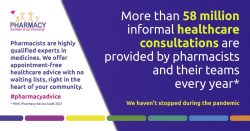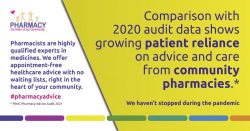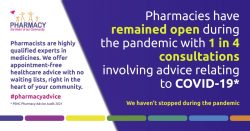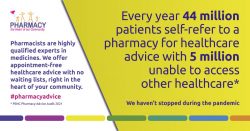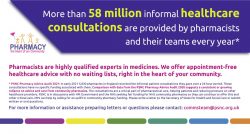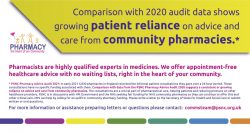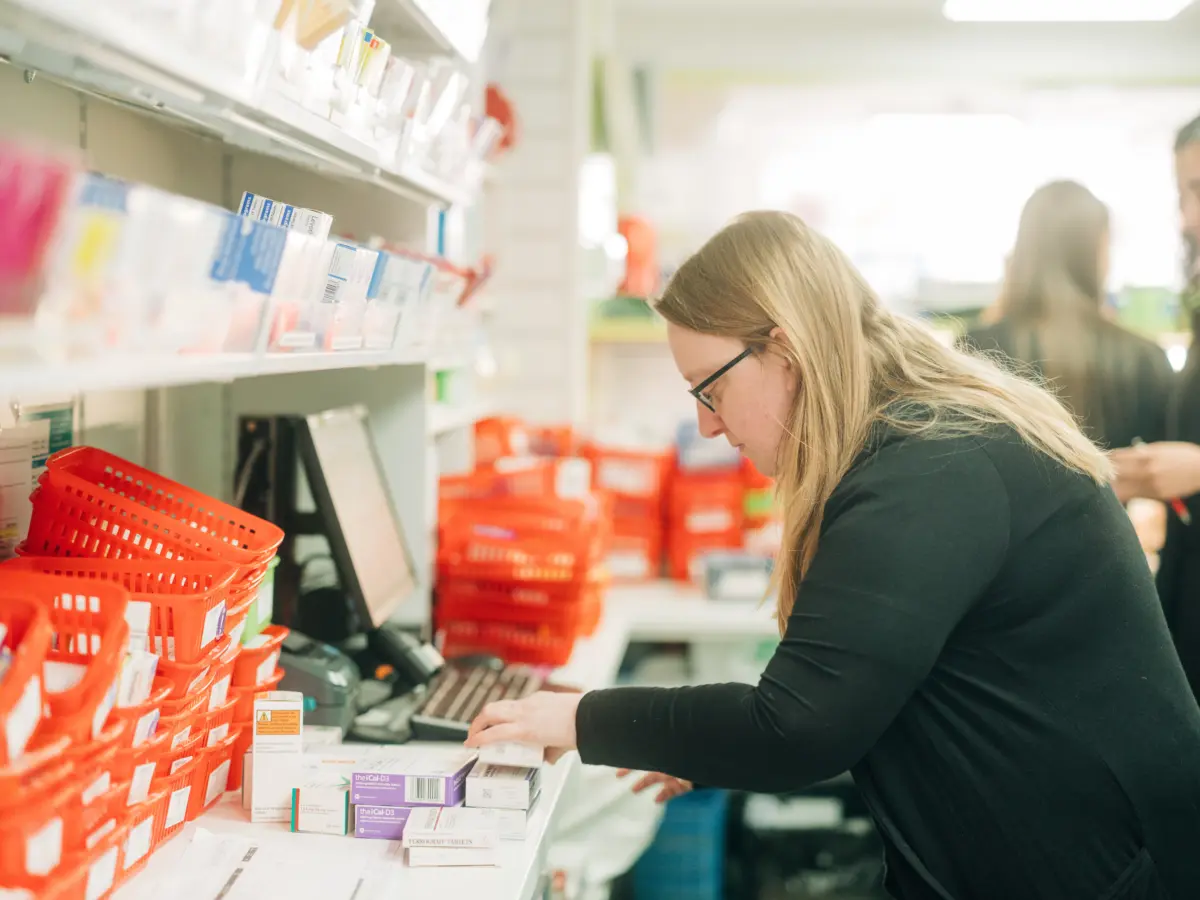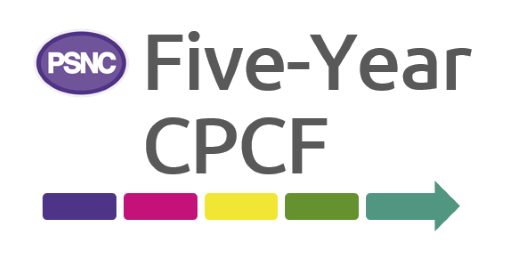Pharmacies in England carry out 58 million consultations a year
THIS CONTENT HAS NOW EXPIRED
More than 1.1 million informal consultations a week – or 58 million a year – are conducted by community pharmacy teams in England, according to PSNC’s 2021 Pharmacy Advice Audit.
PSNC has today published the findings of an audit of almost 6,000 community pharmacies held earlier this year, alongside a series of resources to promote the value of pharmacy advice.
During the audit 114,898 informal patient consultations were recorded, with the average pharmacy carrying out around 17 consultations per day. This means that more than 1.1 million informal consultations are taking place in community pharmacies in England every week.
The audit enabled PSNC to measure the reliance that the public has had on pharmacies through the COVID-19 pandemic, and the additional pressure that this has put on pharmacy teams.
It also helped quantify the informal referrals to pharmacies being made by GPs and NHS111 so that PSNC can seek improvements to the NHS Community Pharmacist Consultation Service (CPCS). The scale and scope of advice being given by pharmacies will also help demonstrate the sector’s value to the public and the NHS, as well as supporting PSNC’s negotiations with HM Government.
PSNC has produced a summary, infographic and social media assets to make it easier to share the audit findings – see the ‘Resources’ section below.
PSNC’s findings
The audit results indicate that every week pharmacies help over 730,000 people seeking advice for symptoms and more than 263,000 people about an existing medical condition. In almost a quarter of these informal consultations (24%), people seek advice about COVID-19.
Pharmacy teams were able to provide expert advice to an incredible 97% of those who sought it, with just over half (54%) also leading to the sale of a medicine. The average staff time per consultation was just over five minutes. However, during this audit, 61% of pharmacies reported being under intense pressure, with an average score of 7.66 out of 10 given for pharmacy pressure.
Almost half of people seeking advice said without pharmacy to turn to they would have attended a GP practice, and 8.6% said they had already been unable to access another part of the healthcare system. A further 9% and 2.5% of consultations were the product of informal referrals from General Practice and NHS111.
The audit showed that every week unpaid pharmacy advice is preventing 70,000 people from going to A&E or an NHS walk-in centre and saving more than 74 appointments for every single GP practice across England.
Extrapolating the results of the audit, PSNC has found that:
- More than 58 million informal healthcare consultations are provided by pharmacists and their teams every year;
- Every year 44 million patients self-refer to a pharmacist and their team for healthcare advice, with 5 million unable to access other healthcare;
- Pharmacies have remained open during the pandemic with 1 in 4 consultations involving advice relating to COVID-19;
- Informal consultations provided by pharmacists and their teams save more than 24 million GP appointments every year; and
- 61% of pharmacies reported being under intense pressure due to growing demand unmatched by funding.
CEO comment
PSNC Chief Executive Simon Dukes said:
“Thank you to all the pharmacy teams who took part in this PSNC audit. It will provide an important dataset for use in our negotiations with Government.
The audit results help showcase the incredible work that community pharmacies do every single day and the value that this brings to their patients. They also explore the COVID impact: the additional pressures this has brought for the workforce and the increasing reliance the public has had on pharmacy services during the pandemic.”
Resources
PSNC Pharmacy Advice Audit 2021: Full Report
PSNC Pharmacy Advice Audit 2021: A summary of findings
Infographic aimed at MPs: Community Pharmacy Consultations Update
Social media tiles: (click to enlarge, right-click to save image)

